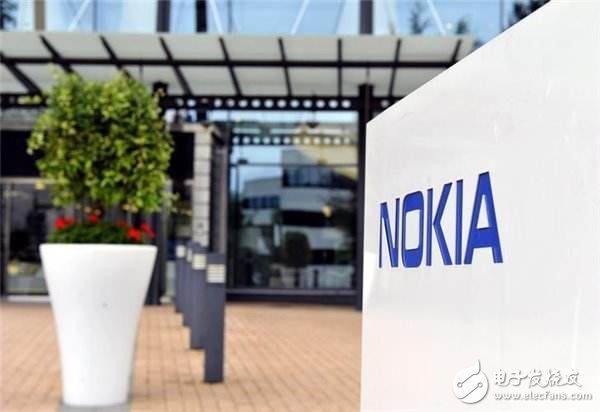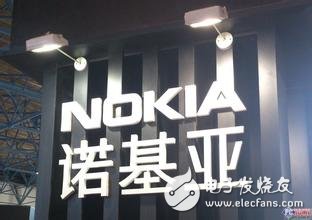Nokia has appeared in people's sights from time to time in recent years, but many people may only have feelings about this brand. It seems that the news can't excite the waves in our hearts. Recently, Nokia, which has been quiet for a long time, has released new news. Nokia announced that it will acquire Deepfield, a leader in real-time performance analysis and security analysis for IP networks in the United States. A former communication industry king, now need to transform into an "analyst"?
The significance of the acquisition of Deepfield:
Deepfield has a powerful and unique Internet Genome technology that solves the visibility problem by identifying more than 30,000 common cloud applications and services and tracking the flow of traffic through the network to end users. Moreover, the network itself does not require the installation of expensive detectors, monitors and monitors. Support for advanced IP network engineering and support cases through a powerful multi-dimensional view of the network and the applications running on it.
Nokia plans to combine Deepfield Big Data Analytics with the dynamic control capabilities of open network SDN platforms such as Nokia's Network Service Platform (NSP) and Nuage Network Virtual Service Platform (VSP) to solve network and service automation problems. These products enable a real-time, self-adjusting cognitive "brain" of wide area network (WAN) and data center networks to quickly adapt to changes in application requirements, traffic, and transmission patterns. This move will help Nokia customers significantly improve network efficiency, ensure quality of service and enhance security, all in real time without human intervention.
In addition, Nokia's Service Assurance and Customer Experience Management portfolio will leverage Deepfield's Big Data Analytics to analyze and automate the performance of each user's application to ensure healthy service operations and sustained customer satisfaction.
Although the current network traffic of cloud applications and services such as Netflix, Hulu, HBO Go, Google Docs, and Facebook has accounted for more than 60%, service providers do not know which applications are running on their networks, and they are not clear about these applications. What impact does its network and users have? At the same time, with the advent of SDN and NFV technologies, the demand for network and service automation has also increased, and real-time big data analysis driving this demand is imperative.

Is Nokia really a "weak chicken"?
After Microsoft's acquisition of Nokia's mobile phone business, the launch of Lumia products has not been popular, and the poor software ecosystem has become a slot for many users. In May of this year, Microsoft sold the Nokia function machine business for $350 million. I gave Foxconn. The former communication faucet has now become bruised and bruised. It may be only for the Nokia True Love Powder that is in the middle of the day.
But in fact, this is not the case, Nokia is alive and well.
In fact, after Nokia’s troubled mobile phone business was given to Microsoft, its share price has doubled, and the days have been a lot easier.
First of all, we must know that in addition to mobile phones, Nokia has three major businesses:
First, communication
Second, the patent
Third, Here map
Communication
Nokia Communications, which occupies half of Nokia’s revenue, is still a traditional telecom wireless network equipment and solution provider. But in fact, Nokia Communications is no longer a traditional hardware equipment manufacturer.
According to its latest financial report, global service revenue has accounted for about half of all income. In addition to traditional localization services such as virtualization, telecom cloud, and professional operation and maintenance, it has become the largest source of revenue for Nokia's communications services.
The third quarter 2015 financial report shows that Nokia's contribution to the global service business and mobile broadband business, especially the system integration business in the global service business, the gross profit rate calculated by non-IFRS 39.5%.
As the largest market for global 4G networks, the Chinese market is undoubtedly the top priority of global telecom equipment vendors. In October 2014, Nokia won China Mobile's $970 million TD-LTE contract. Among the ten largest LTE operators in the world (measured by LTE users), Nokia is one of eight LTE/TD-LTE wireless providers.
In January 2015, Nokia successfully acquired Alcatel-Lucent for $16.6 billion, becoming the second-largest provider of communications equipment and slashing the telecommunications network equipment market.
At the 2016 MWC conference, Nokia announced the establishment of a $350 million IoT fund to fully bid on 5G.
It is expected that by 2020, we will be able to use the 5G mobile phone network provided by Nokia. The speed of 5G will reach 10 to 100 times that of 4G. By then, the use of mobile network will be extended to 3D HD video and smart home network.

Volvo Generator Set,Move Diesel Generator,Heavy Duty Genset,Silent Genset
Yangzhou Hengyuan Electromechanical Equipment Co., Ltd. , https://www.lchygeneratorset.com